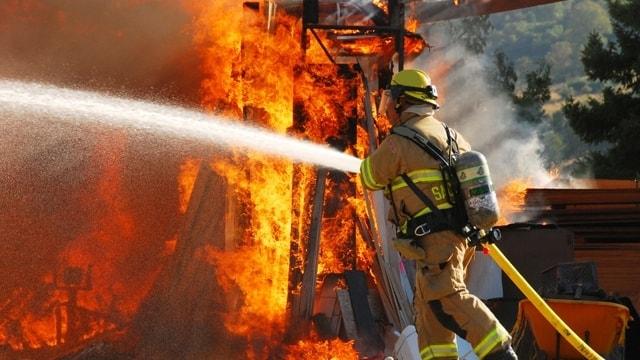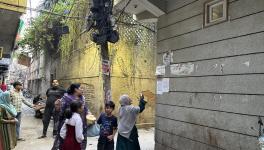Delhi’s Factory Fires Swallow More Workers

Image Courtesy: ausatec.com.au
Delhi’s factories seem to have turned into infernos — swallowing one worker after another in its fires, quite literally.
Two workers were burnt to death in yet another factory fire in the national capital — this time at a jeans manufacturing unit at Gandhi Nagar in Shahdara district of north-east Delhi.
This is the sixth such incident — of workers dying after a factory caught fire — since the beginning of this year, and the fourth in this month alone.
Faizan (22) and Sehmat (30), both natives of Uttar Pradesh, were killed in a fire that broke out on the night of 22 April. Their bodies were recovered from the first floor of the three-storey building. Police said the two men were working overtime that night, and the fire might have been sparked off by a short circuit. A case was also registered against unknown persons under various sections, including 304A (causing death by negligence) of the IPC.
A total of 28 workers have reportedly died in factory fires in 2018 so far.
On 20 January, 17 workers were charred to death at an unauthorised firecracker unit in Bawana Industrial Area. These workers included at least seven women too, including one who was pregnant.
On 10 February, one worker died after a fire broke out at a garment manufacturing unit in Karol Bagh.
On 7 April, two workers died in a blaze at a footwear manufacturing unit at an industrial area in Bhorgarh, Narela, in north-west Delhi.
On 9 April, four workers — including two minors — died after a fire broke out at an illegally running shoe manufacturing unit in Sultanpuri of north-west Delhi.
On 17 April, two workers died in a fire at a crockery factory in Nawada.
Many of the factories that comprise Delhi’s unregulated small industries sector operate in unauthorised areas, usually residential areas of the lower middle class and slum areas — which are not part of the officially designated industrial areas.
Typically, because these factories are operating illegally, there are no fire safety measures, no labour laws are followed and the working conditions are deplorable.
Another common practice in such units is that the factory gate is locked from the outside even as the workers sleep inside — as was the case in both the Sultanpuri unit and the Nawada unit. At the time of the Sultanpuri fire, 40 workers were sleeping inside the factory.
Workers in such factories are paid a paltry wage — much below the minimum wage — while working overtime. In Delhi, the official minimum wage for an eight-hour work day is Rs 13,350 per month for unskilled workers, Rs 14,698 for semi-skilled workers and Rs 16,182 per for skilled workers, according to a notification in March 2017.
In the Bawana factory, workers were reportedly up to Rs 200 per day for a 10-hour shift. In the Sultanpuri shoe manufacturing unit, workers were being paid on a piece-rate of Rs 30 per pair of shoes, while working 10-12 hours per day.
So why are these incidents continuing to happen? What is the government doing?
“It is the same old story. It is because of the callous attitude of the government that such tragic incidents continue. Inspection and implementation are weak. Officials are corrupt and often ignore violations,” said Anurag Saxena, general secretary of the Delhi unit of the Centre of Indian Trade Unions (CITU), speaking to Newsclick.
“These illegal units tend to operate on extremely small premises. It is not even possible to install the fire safety measures as required by the law.
Saxena said there were just 11 labour inspectors to take care of more than 20 lakh workers in Delhi. He said one solution was to shut down the illegally running units.
“These illegal factories must be shut down and/or shifted. The state government must take measures to ensure no factory is operating outside the designated industrial areas. It is up to the area-level SDM (Sub-Divisional Magistrate) and DM (Divisional Magistrate) to take care of this,” he said.
However, the challenge in front of the Trade Unions is to organise workers in the unorganised sector and take up these issues more aggressively.
Get the latest reports & analysis with people's perspective on Protests, movements & deep analytical videos, discussions of the current affairs in your Telegram app. Subscribe to NewsClick's Telegram channel & get Real-Time updates on stories, as they get published on our website.
























